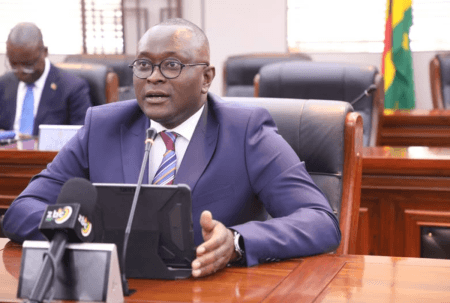When it comes to artificial intelligence, the global conversation often feels like a high-stakes boardroom meeting where Africa’s chair is conspicuously empty. But as Charles Murito, Google’s policy lead for Sub-Saharan Africa, made clear at the recent Successfully Harnessing AI in Africa event, excluding African voices isn’t just a missed opportunity—it’s a critical misstep that could stunt AI’s potential to solve humanity’s biggest problems.
Hosted by Wilton Park, the event brought together policymakers, innovators, and thought leaders to chart a path for AI in Africa. Murito’s message was unequivocal: African innovation isn’t just a nice-to-have; it’s a must-have for crafting AI policies that are equitable, effective, and globally relevant. “It’s absolutely critical for African voices to be included in the AI conversation,” he said, pointing to the continent’s unique challenges and ingenuity as vital ingredients for shaping the future of AI Wilton Park Report.
Africa’s Unique Lens on AI
Africa’s context—its diverse cultures, resource constraints, and pressing social issues—offers a testing ground like no other. From healthcare deserts to agricultural inefficiencies, the continent faces challenges that demand creative, scalable solutions. Murito highlighted how African innovators are already leveraging AI to tackle these issues, from AI-powered diagnostics in rural clinics to predictive models for crop yields. These aren’t just local wins; they’re proof-of-concept for global applications.
Take, for example, the rise of AI startups in Nairobi and Lagos, which are building language models for low-resource African languages. These tools don’t just preserve linguistic diversity—they lay the groundwork for AI systems that can operate in multilingual, multicultural settings worldwide. By bringing these innovations to the policy table, Africa can help ensure AI doesn’t become a one-size-fits-all monolith but a flexible tool that respects nuance.
Shaping Policy with African Insight
Murito emphasized that policy frameworks for AI must reflect the realities of the environments they serve. In Africa, where data privacy laws are still evolving and internet access remains uneven, top-down regulations from Western tech hubs often fall flat. African policymakers and innovators, Murito argued, are best positioned to craft rules that balance innovation with ethical guardrails. For instance, community-driven data governance models in Africa could inspire global standards that prioritize consent and cultural sensitivity over corporate interests.
The Successfully Harnessing AI in Africa report underscores this, noting that inclusive policy dialogues can bridge gaps between governments, tech giants, and local communities Wilton Park Report. By amplifying African voices, the global AI ecosystem can avoid the pitfalls of bias and exclusion that have plagued early AI deployments.
A Global Stage for African Solutions
Perhaps the most compelling case for African inclusion is the potential for its innovations to address universal challenges. Climate change, food security, and public health don’t respect borders, and Africa’s AI-driven solutions are already showing global promise. Murito pointed to projects like AI-based flood prediction models in East Africa, which could inform disaster preparedness worldwide. When African innovators are given a seat at the table, their solutions don’t just stay local—they scale.
Yet, for this to happen, the world needs to listen. Too often, African contributions are sidelined as “regional” or “niche,” while Western frameworks dominate the narrative. Murito’s call to action is a reminder that AI’s future hinges on diversity of thought. If the goal is to build AI that serves all of humanity, leaving out 1.4 billion African perspectives is not just shortsighted—it’s unsustainable.
Time to Turn Up the Volume
The Successfully Harnessing AI in Africa event was a step toward amplifying African voices, but it’s only the beginning. For AI to live up to its transformative promise, African innovators, policymakers, and communities must be active architects, not afterthoughts. As Murito put it, the continent’s challenges are its greatest assets, fueling innovations that can redefine what AI can do—for Africa and the world.
So, let’s rewrite the AI script. It’s time to hand the mic to Africa and let its voices shape a future where technology doesn’t just work for some, but for all. Want to dive deeper? Check out the full event report at Wilton Park and join the conversation.






